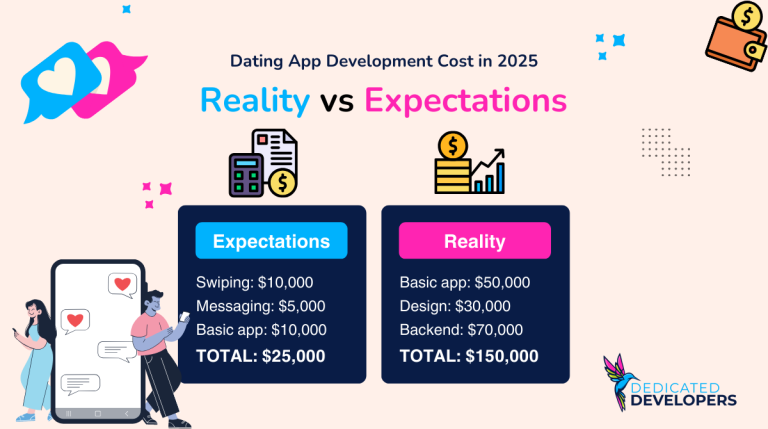Why .NET is Best Fit for IoT Projects
Introduction
The Internet of Things (IoT) is the process of connecting objects to the internet. It was developed to create a direct union between virtual reality and the physical world. When the Internet of Things was first created over a decade ago, there were only a few IoT development enthusiasts. Nowadays, however, IoT enthusiasts have increased dramatically with some building their IoT devices for home use and others making use of Industrial IoT to enhance industrial facilities efficiency.
As a result of the continued interest in IoT technology and development of IoT devices, Tech giants began to develop different platforms for generating IoT solutions. Most of these platforms have become obsolete, but a lot of them are still useful today. An example of an IoT platform like this is .NET from Microsoft.
.NET is one of the few expert platforms that keep up with the IoT development trends. Tech giants like Dell, eBay, Amazon, Accenture, and others work with .NET because of its performance and adaptability. These traits are essential for IoT development. In this article, we’ll take a look at the different reasons why .NET is the best fit for your IoT project.

Windows 10 IoT Core
Because .NET is a product of Microsoft, it’s completely compatible with Windows 10 IoT Core. The Operating System (OS) for Windows 10 which was released in 2015 was specifically developed to run on devices with low power like Dragonboard 410c, MinnowBoard MAX, and Raspberry Pi 2 & 3.
A significant advantage of this is it’s free. Windows 10 IoT cores have a useful toolkit and a myriad of integration options – this is as a result of the Universal Windows Platform (UWP) and Visual Studio & Azure Cloud Platform.
With the combination of .NET Core and UWP, you can hire .NET developers that will be able to build cool IoT apps for Windows 10 IoT Core. .NET Core is advantageous because it offers a smooth UX. A web development company in the USA will not be able to implement multifaceted IoT systems with some .NET and Windows 10 IoT Core, but they can have fun with customizing small IoT systems.
Related Blog: What are New Approaches in IoT Security?
.NET Ready-Made Solutions
Almost every coding issue or problem has been developed and resolved somewhere on the internet. .NET helps any web development company in USA save time by offering ready-made solutions. This means that if you’re facing issues with your IoT solution, there is a high chance that someone else has already found an answer for it and published the code on GitHub or Bitbucket – all you need to do is copy and paste the code.
The .NET community is a large one, and they produce a significant amount of reusable code. In combination with the .NET Framework class library, the IoT development speed of any web development company in the USA will increase vastly. .NET is an excellent solution as it offers the advantages mentioned above and it’s the best option for when you have a tedious deadline.

Microsoft Azure
This platform is acknowledged as one of the best enterprise-class platforms in existence, and it works amazingly well for IoT user functions. Microsoft offers the Azure IoT platform and IoT accelerator with recovery and data storage. The flexibility, security, analytics, and interoperability provided by Microsoft Azure are essential features for IoT development.
This cloud platform that is dependable and secure offers many services. By developing an application runtime or host in the Azure Dashboard, you can position your applications easily in the cloud with a few clicks. The top engineers in Microsoft are working extensively on Azure to include new beneficial features and offer essential updates.
ASP.NET Core
ASP.NET Core is a popular and free open-source, cross-platform web framework. When you hire .NET developers they make use of this framework as it allows them to create compelling web and IoT applications easily. With ASP.NET Core and Windows 10 IoT in your toolset, you can develop good applications or services that run in the background of your IoT device.
The toolbox that ASP.NET Core has to offer is very rich, and it supports different programming languages like F#. C#, and Visual Basic. It also boasts quick deployment, security, top performance, and stress-free cloud integration – which is what is needed for any IoT project.
With ASP.NET Core, you can select any cloud platform like AWS, Microsoft Azure, or Google Cloud IoT as it’s effortless to set up in a cloud. Hire dot NET developers that can make use of ASP.NET to set up an app with the same .NET runtime as that used during development. With this framework, the chances of you encountering bugs caused as a result of environmental differences will be reduced.
The .NET Community
Having a supportive community is very important for web developers, and fortunately .NET can boast of a community like this. There are over two million .NET users who are ready to share experiences and help solve challenging issues with you.
A community is better than the support line as a community of developers with real experiences from different parts of the world can help amateur and less-experienced IoT developers by offering solutions for any problem they might have.
The .NET community, like other software development communities, hangs out on GitHub and StackOverflow – where you can ask questions and search for solutions to code problems or issues. There are a lot of .NET Open Source Software projects from Microsoft that are available on these platforms.
To Wrap It Up
Unlike other platforms that have been in the market for quite a long time, .NET has become more popular and advanced as the years go by. The .NET platform is a wonderful environment for developing IoT apps as it boasts a sophisticated toolset, strong community support, good development service, and an open source nature.
In the years to come, IoT will see massive growth with regards to the demand for this technology. With .NET Core working with Linux and MacOS, there is no doubt that .NET is the preferred platform to create IoT apps.







